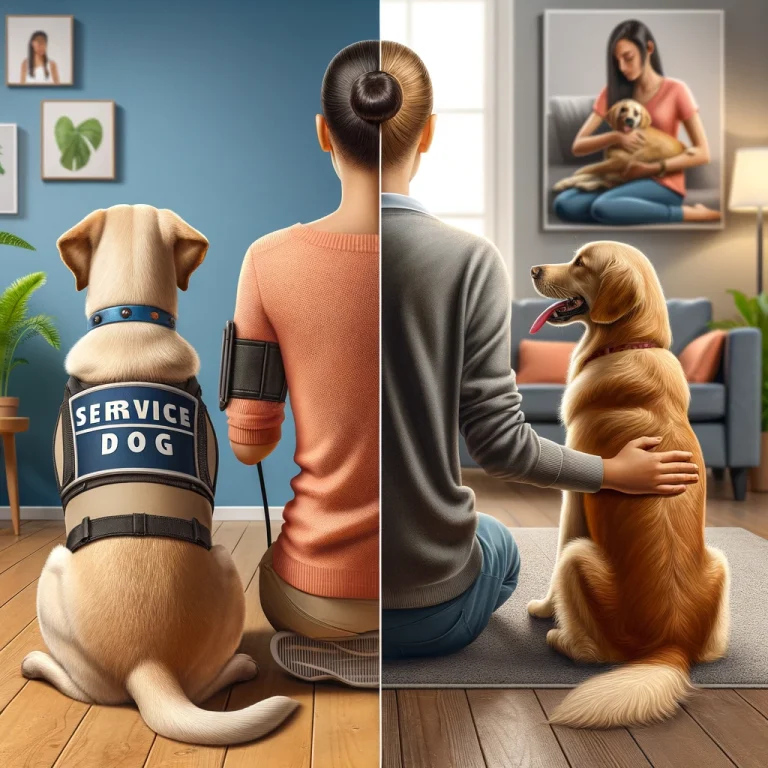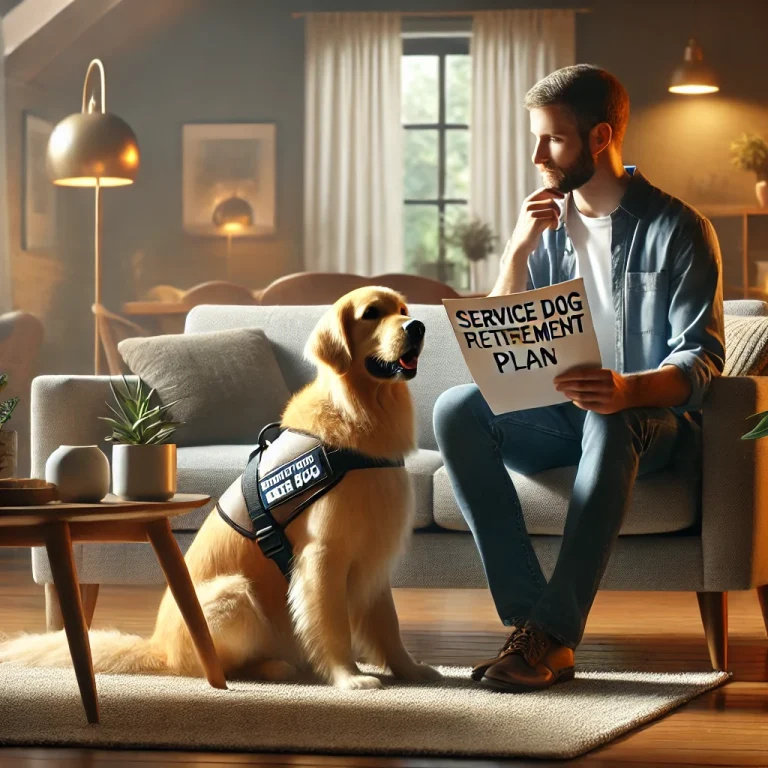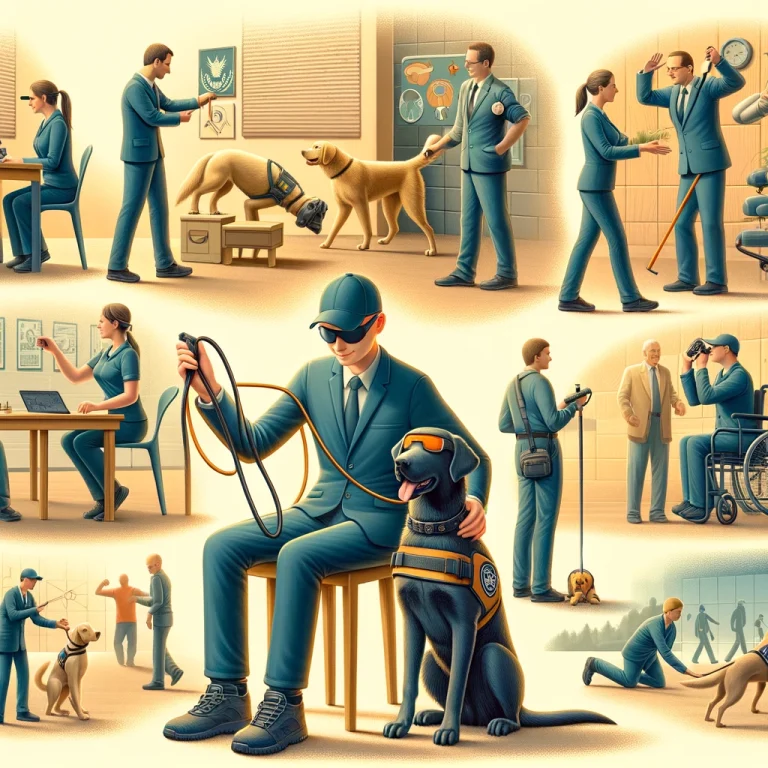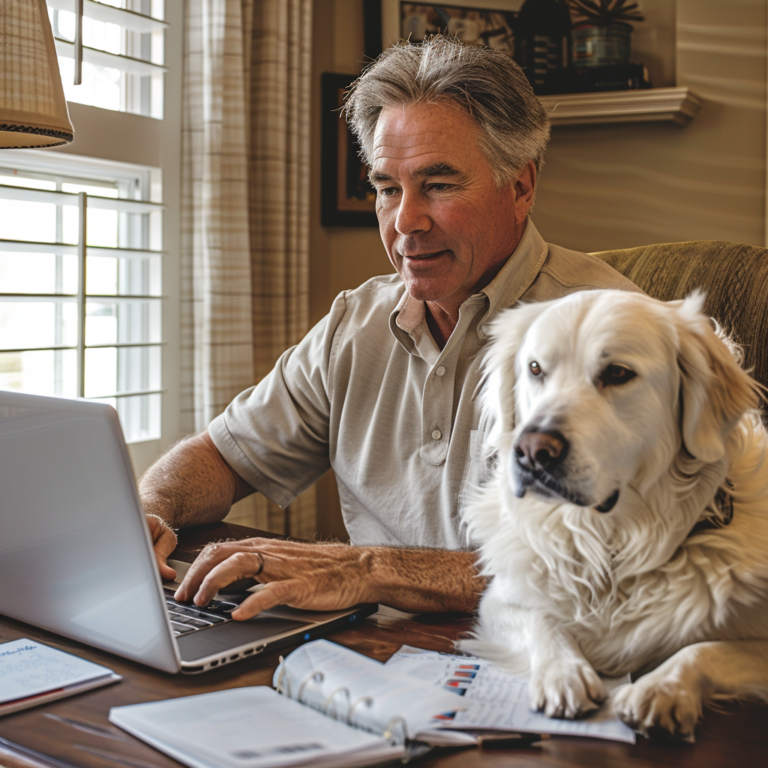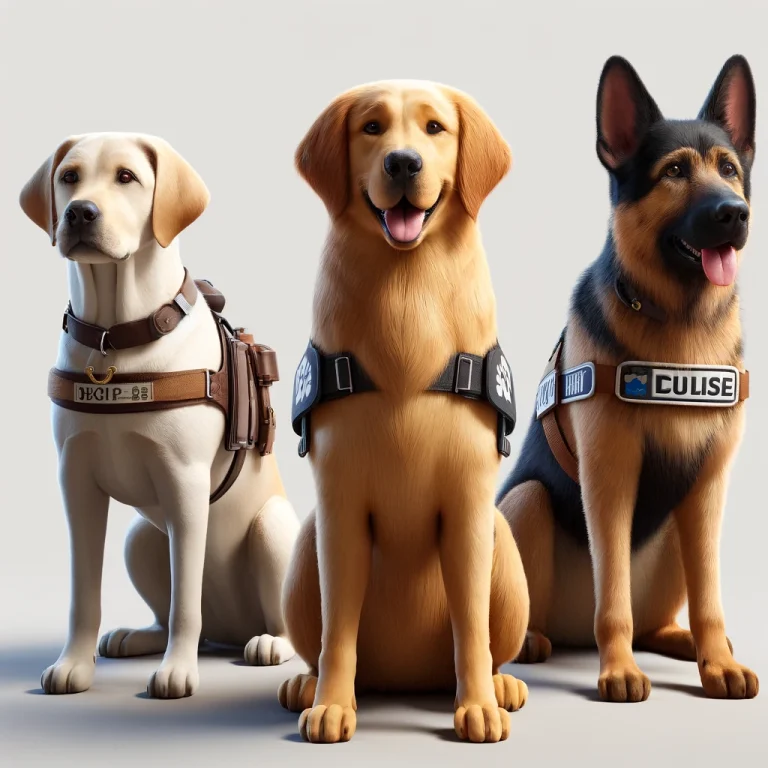Finding the right service dog trainer is crucial to ensuring that your service dog is well-trained, effective, and a reliable companion. This blog post will guide you through what to look for in a service dog trainer, focusing on service dog trainer qualifications, choosing a service dog trainer, and evaluating service dog training programs.
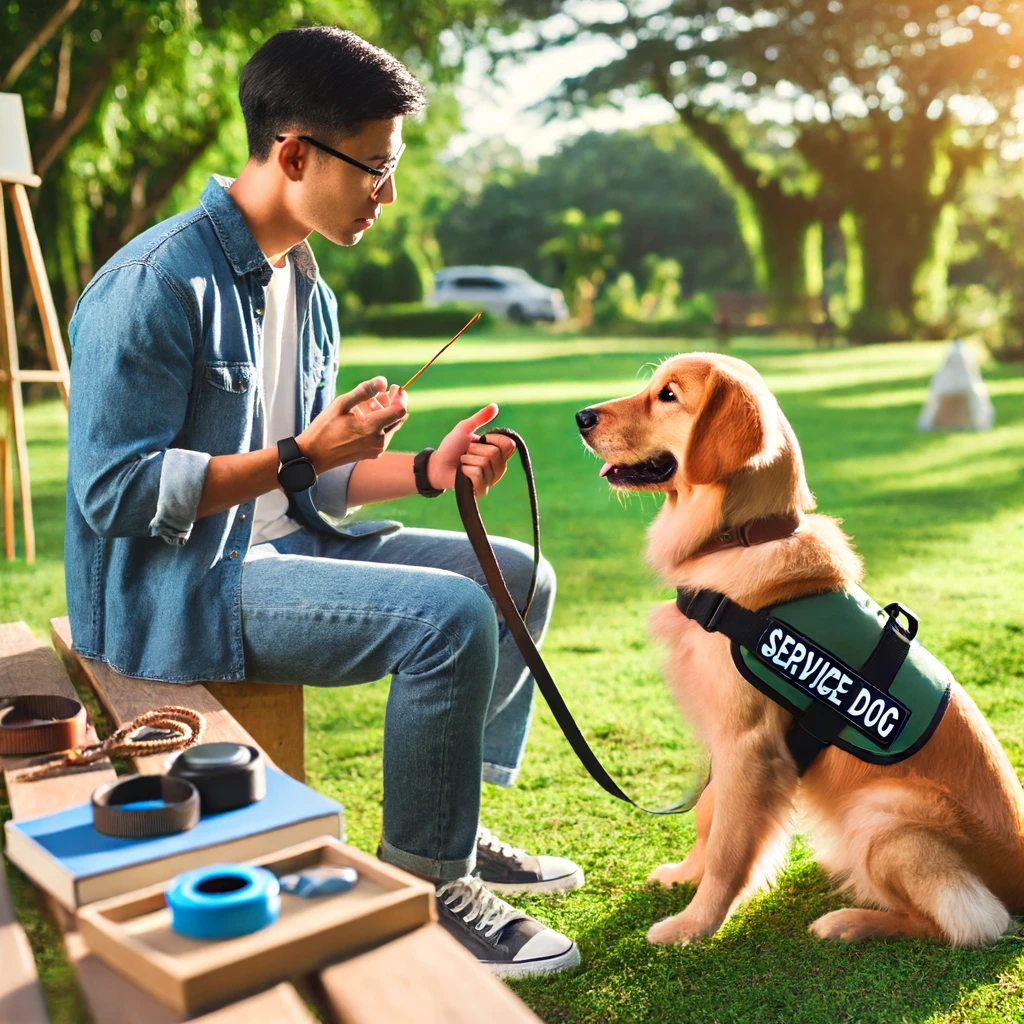
Understanding the Importance of the Right Trainer
Choosing the right service dog trainer can make all the difference in the success of your service dog’s training. A well-trained service dog can significantly improve your quality of life, providing not only physical assistance but also emotional support. The right trainer will ensure your dog is skilled, reliable, and adaptable to various environments and situations.
Service Dog Trainer Qualifications
Certifications and Experience
When evaluating service dog trainer qualifications, it’s essential to look for certifications and experience. Certified trainers have undergone rigorous training themselves and have demonstrated their ability to train service dogs effectively.
Key Certifications to Look For:
- Certified Professional Dog Trainer (CPDT-KA or CPDT-KSA): This certification from the Certification Council for Professional Dog Trainers (CCPDT) is a mark of a trainer’s knowledge and skills.
- International Association of Canine Professionals (IACP): Membership in this organization indicates a commitment to high standards and ongoing education.
- National Association of Dog Obedience Instructors (NADOI): This certification shows a high level of expertise in dog training.
Practical Experience
Experience is just as important as formal qualifications. A trainer with years of hands-on experience is likely to have encountered a wide range of training challenges and developed effective strategies to address them. Ask potential trainers about their experience with service dogs specifically, as training service dogs requires different skills than training pets.
Choosing a Service Dog Trainer
Recommendations and Reviews
When choosing a service dog trainer, recommendations and reviews are invaluable. Talk to other service dog owners, read online reviews, and ask for references. A trainer with a solid reputation is more likely to provide high-quality training.
Training Methods
Understanding the training methods used by a trainer is crucial. Positive reinforcement is widely regarded as the most effective and humane training method. Avoid trainers who use harsh or punitive techniques, as these can harm your dog’s mental and emotional well-being.
Questions to Ask:
- What training methods do you use?
- How do you handle a dog that is not responding to training?
- Can you provide examples of how you’ve trained specific behaviors or tasks?
Trial Sessions
Many trainers offer trial sessions or initial consultations. Take advantage of these opportunities to observe the trainer in action and see how they interact with your dog. This can give you a sense of their methods, communication style, and overall compatibility with your dog.
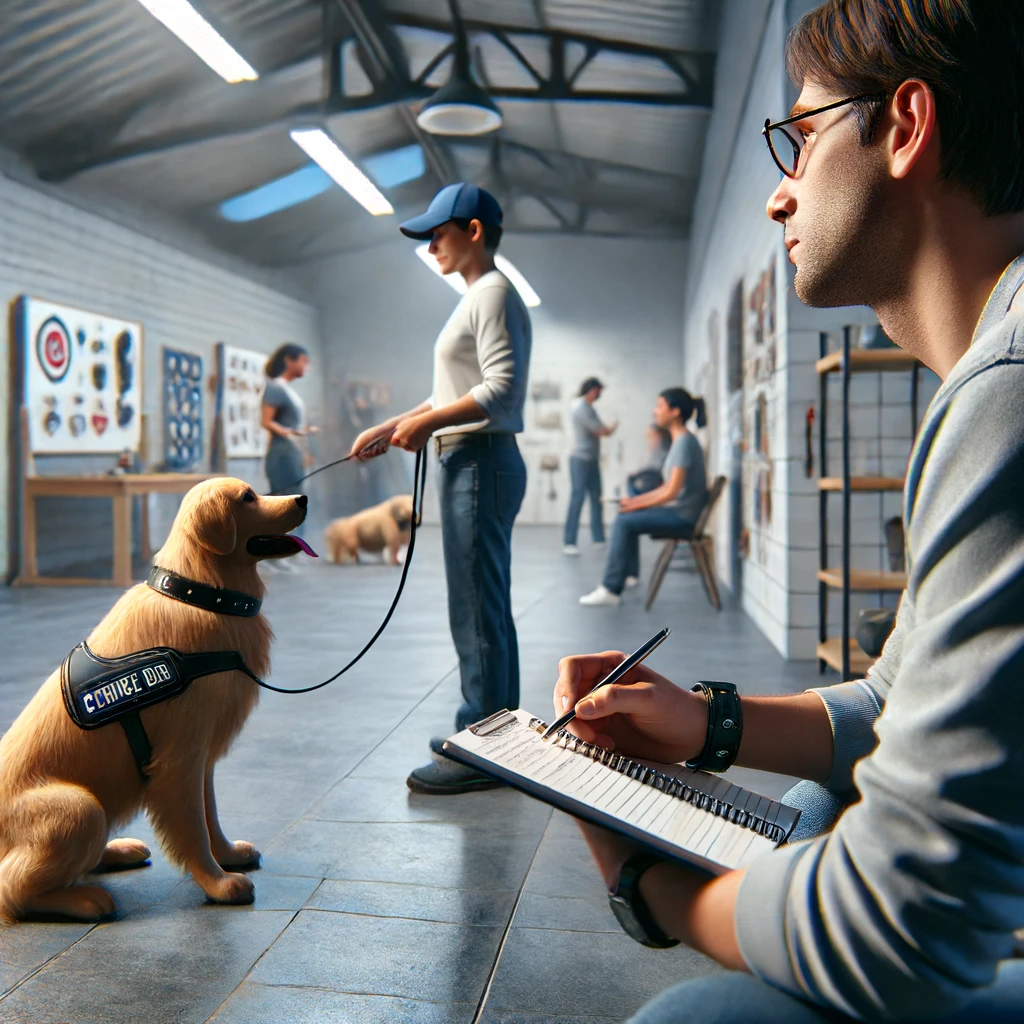
Evaluating Service Dog Training Programs
Program Structure and Duration
Evaluating service dog training programs involves understanding the structure and duration of the program. Service dog training is a long-term commitment, often taking 6 months to 2 years. Ensure the program has a clear structure, including initial training, ongoing support, and opportunities for refreshers or advanced training.
Success Rates and Outcomes
Ask about the success rates and outcomes of the program. A reputable program should be able to provide statistics or case studies demonstrating their success in training effective service dogs. Look for programs with high graduation rates and positive feedback from graduates.
Support and Follow-Up
Ongoing support and follow-up are crucial aspects of a good service dog training program. Ensure the program offers continued support after the initial training period. This can include follow-up sessions, advice on handling new challenges, and opportunities for additional training if needed.
Cost and Financial Assistance
Service dog training can be expensive, so it’s essential to understand the costs involved and explore any available financial assistance. Some programs offer scholarships, grants, or payment plans to make training more accessible. Research these options and discuss them with potential trainers or programs.
The Role of Pet Insurance and Service Dog Products
Investing in pet insurance and high-quality service dog products is crucial for maintaining your service dog’s health and effectiveness. Pet insurance provides financial protection for unexpected medical expenses, ensuring your dog receives the best care without causing financial strain. Look for policies that cover routine care, emergencies, and chronic conditions.
High-quality service dog products, such as vests, harnesses, and identification tags, are essential for your dog’s comfort and effectiveness. These products ensure your dog is easily identifiable and well-equipped for their tasks. ServicePupSolutions.com offers a range of products to support your service dog’s training and daily needs.
Self-Training Options
For those interested in training their service dog themselves, resources like ServiceDogOwners.com offer valuable guidance. Self-training allows you to build a strong bond with your dog while tailoring their training to your specific needs.
Benefits of Self-Training:
- Personalized Training: Tailor the training to your specific needs and preferences.
- Stronger Bond: Build a closer relationship with your dog through direct training.
- Cost-Effective: Reduce the costs associated with professional training services.
- Flexibility: Train at your own pace and schedule.
Conclusion
Finding the right service dog trainer involves evaluating qualifications, choosing a compatible trainer, and assessing training programs. By focusing on service dog trainer qualifications, choosing a service dog trainer wisely, and evaluating service dog training programs thoroughly, you can ensure your service dog is well-trained and effective. The benefits of a well-trained service dog are immense, providing both physical assistance and emotional support.
For more resources and high-quality service dog products, visit ServicePupSolutions.com. And for those interested in self-training options, explore the comprehensive guides available at ServiceDogOwners.com.
Searching for a way to boost your income while keeping your service dog by your side? Learn how Digital Marketing and Affiliate Marketing can launch your Side Hustle or new career and increase your earnings alongside your loyal companion. Click Here to find out more and start your journey today!

